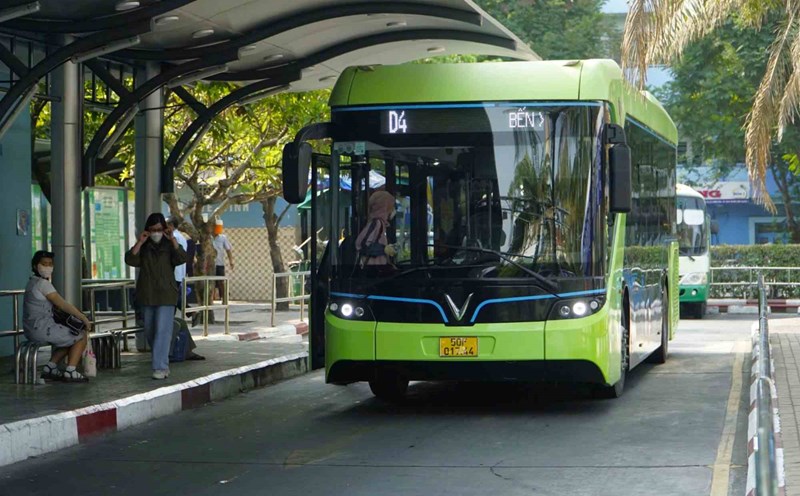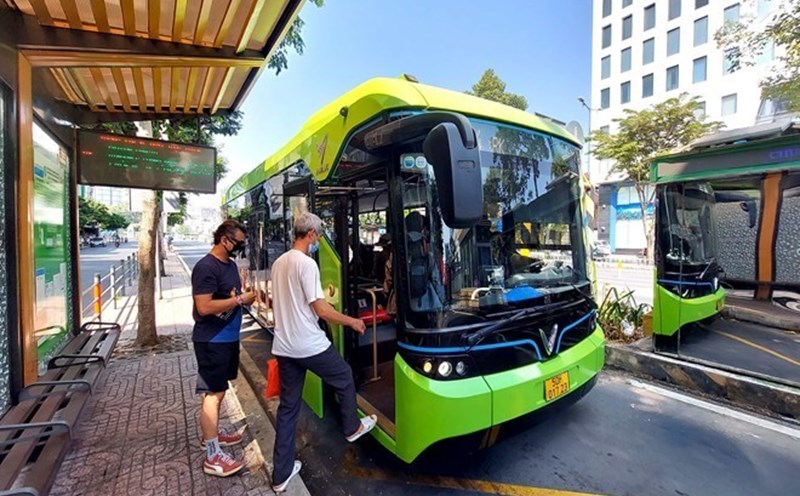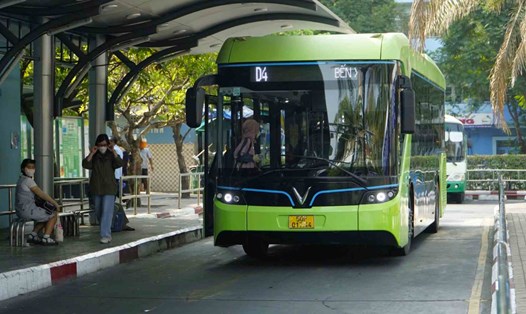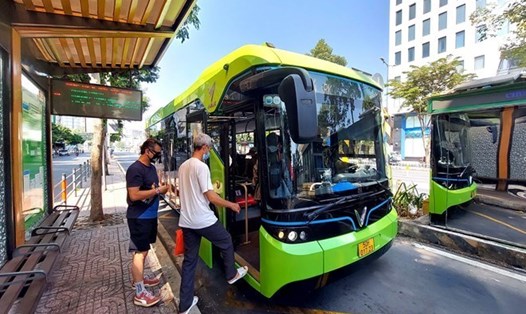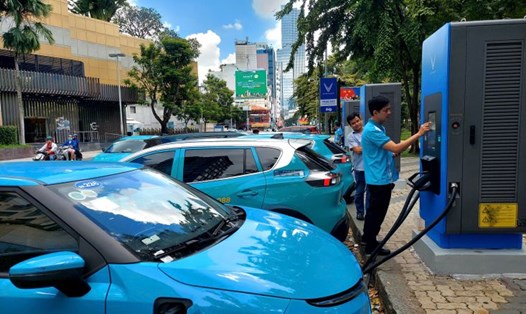Ho Chi Minh City plans to install charging stations at 19 bus stations and bus stations to serve electric vehicles and promote a green transformation roadmap.
The Ho Chi Minh City Department of Construction has just submitted a document to the Ho Chi Minh City People's Committee on approving the project to exploit assets of road traffic infrastructure (host, bus station) to invest in installing an electric charging system for vehicles.
The 19 selected bus stations and parking lots include: Van Thanh, Saigon, Cho Lon, Dam Sen, Tan Phu, Linh Trung 2 export processing area, Linh Dong, Hiep Thanh, Thoi An technical logistics area, Hoc Mon, Tan Quy, An Nhon Tay, Le Minh Xuan, the end point of the bus route on Tran Dai Nghia Street, District 8 Bus Station, Can Gio Bridge, Cu Chi and Binh Thai.
The total area of the wharves is nearly 110,000 m2, of which the leased area is more than 25,000 m2.
In particular, electric motorbike battery cabinets will be installed at 4 parking lots including: District 8 Bus Station, Saigon, Cho Lon and Binh Thai.
According to the Department of Construction, Ho Chi Minh City currently has only 5 charging stations with 56 poles, meeting the charging needs of more than 700 electric buses, but with the plan to expand green vehicles, charging station infrastructure is still limited.
The Public Transport Management Center currently manages 25 bus stations and parking lots with a total area of over 120,000 m2, but there are no charging stations.
The exploitation of 19 existing wharves and yards will both reduce infrastructure bottlenecks and effectively exploit public assets, in line with the policy of socializing investment.
According to the project, the Public Transport Management Center will be the agency directly managing and coordinating with relevant units to deploy the installation of charging stations and battery exchangers.
The lease of property exploitation rights at 19 wharves and yards will be carried out through auction for a term of 7 years.
Charging stations will prioritize serving electric buses from 9:00 p.m. the previous day to 6:00 a.m. the following morning, and all types of electric buses can be charged at the stations with a CCS2 port system and open control software.
Regarding financial mechanisms, the rental fee for property exploitation rights will be paid annually. The remaining revenue after deducting expenses will be paid into the state budget, prioritizing capital allocation for investment, upgrading, expanding and developing road traffic infrastructure.
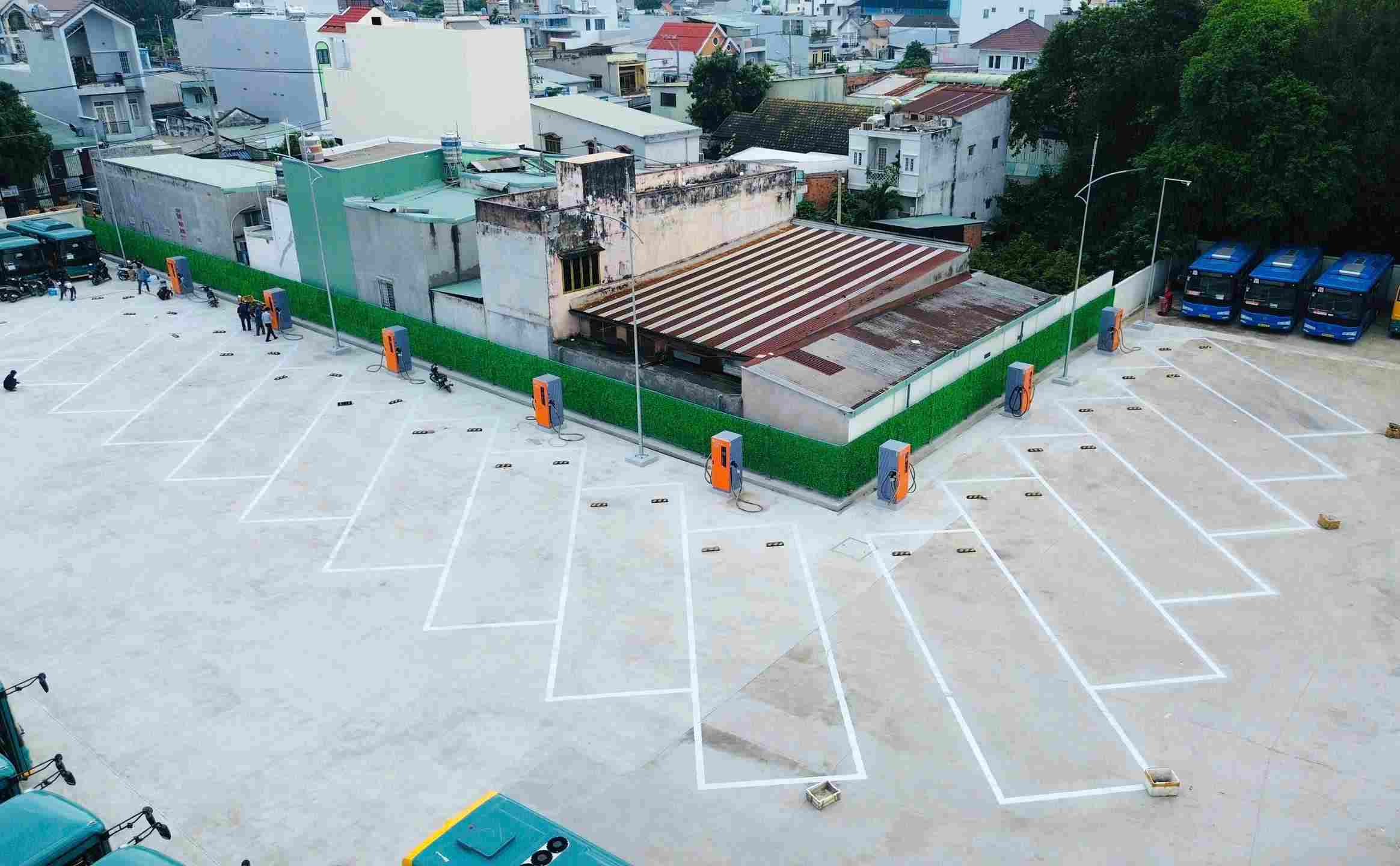
According to the project to control vehicle emissions, Ho Chi Minh City plans to allocate about VND2,200 billion from the budget to support interest for businesses investing in electric buses and charging station systems.
In the period of 2025 - 2030, Ho Chi Minh City plans to convert 3,011 buses to green energy, including 1,537 vehicles replacing old vehicles and 1,474 newly invested vehicles. In addition to the existing number of vehicles, by 2030, the city will own more than 3,600 electric buses.
At the same time, Ho Chi Minh City plans to build 393 super-fast charging stations, capable of serving 5,502 charging vehicles per day.
Regarding financial support, investment in electric buses is supported with a maximum loan interest rate of 85%, not exceeding 300 billion VND/project (excluding deducted VAT). The investor only pays 3%/year, the interest rate difference is paid by the Ho Chi Minh City budget.
Investing in charging stations is supported with a maximum loan interest rate of 70% of construction capital and 85% of technology - equipment capital, not exceeding 200 billion VND/project, with the budget supporting 50% of loan interest.
The maximum support period is 7 years, not exceeding the actual loan term, calculated from the date of initial capital disbursement at Ho Chi Minh City State Finance Investment Company (HFIC).

